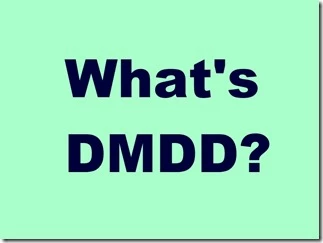 Here begins a series of quick posts highlighting big diagnostic changes that appear in DSM-5. First up for spotlighting: Disruptive Mood Dysregulation Disorder (DMDD). Instead of regurgitating all of the writing that's already been done on the topic, we'll sample some and link out to more in order to help you get a quick handle on the new dx and be ready for any and all licensing exam questions about it.
Here begins a series of quick posts highlighting big diagnostic changes that appear in DSM-5. First up for spotlighting: Disruptive Mood Dysregulation Disorder (DMDD). Instead of regurgitating all of the writing that's already been done on the topic, we'll sample some and link out to more in order to help you get a quick handle on the new dx and be ready for any and all licensing exam questions about it.
PsychCentral sums up the change:
Childhood bipolar disorder has a new name - "intended to address issues of over-diagnosis and over-treatment of bipolar disorder in children." This can be diagnosed in children up to age 18 years who exhibit persistent irritability and frequent episodes of extreme behavioral dyscontrol (e.g., they are out of control).
Zooming in a little at ChildMind.org:
Disruptive mood dysregulation disorder (DMDD) is a condition in which a child is chronically irritable and experiences frequent, severe temper outbursts that seem grossly out of proportion to the situation at hand. DMDD is a new disorder created to more accurately categorize some children who had previously been diagnosed with pediatric bipolar disorder. These children do not experience the episodic mania or hypomania characteristic of bipolar disorder, and they do not typically develop adult bipolar disorder, although they are at elevated risk for depression and anxiety as adults. Unlike pediatric bipolar disorder, DMDD is thought to occur more often in boys than girls.
For the finish, here's the APA:
Far beyond temper tantrums, DMDD is characterized by severe and recurrent temper outbursts that are grossly out of proportion in intensity or duration to the situation. These occur, on average, three or more times each week for one year or more. Between outbursts, children with DMDD display a persistently irritable or angry mood, most of the day and nearly every day, that is observable by parents, teachers, or peers. A diagnosis requires the above symptoms to be present in at least two settings (at home, at school, or with peers) for 12 or more months, and symptoms must be severe in at least one of these settings. During this period, the child must not have gone three or more consecutive months without symptoms. The onset of symptoms must be before age 10, and a DMDD diagnosis should not be made for the first time before age 6 or after age 18.
Bullet-pointed criteria and more detail here:
***
For realistic practice questions about Disruptive Mood Dysregulation Disorder and lots more, sign up!
[Post by Will Baum, LCSW]

 Here begins a series of quick posts highlighting big diagnostic changes that appear in DSM-5. First up for spotlighting: Disruptive Mood Dysregulation Disorder (DMDD). Instead of regurgitating all of the writing that's already been done on the topic, we'll sample some and link out to more in order to help you get a quick handle on the new dx and be ready for any and all licensing exam questions about it.
Here begins a series of quick posts highlighting big diagnostic changes that appear in DSM-5. First up for spotlighting: Disruptive Mood Dysregulation Disorder (DMDD). Instead of regurgitating all of the writing that's already been done on the topic, we'll sample some and link out to more in order to help you get a quick handle on the new dx and be ready for any and all licensing exam questions about it.